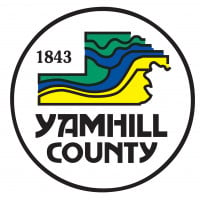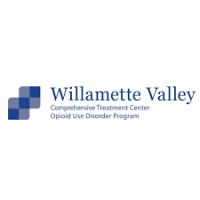Chemical Dependency Program
Drug Rehab Center in McMinnville, Oregon
The Chemical Dependency Program in McMinnville, Oregon is a highly esteemed addiction treatment facility that offers comprehensive aftercare support services and various levels of care including drug rehab, dual-diagnosis therapy, and medical detox tailored to suit individual needs and preferences for those struggling with addiction.
About This McMinnville, OR Facility
Chemical Dependency Program is an addiction treatment facility located in McMinnville, Oregon. Although the exact year of its foundation is not provided, it has been serving individuals struggling with addiction for quite some time. The facility focuses on treating various addictions, including alcoholism, opioid addiction, drug addiction, substance abuse, and also offers support for those with dual diagnosis or mental health conditions. Chemical Dependency Program caters to individuals at different levels of care, providing services such as detoxification, residential treatment programs, outpatient services, intensive outpatient programs, halfway housing facilities for a transitional period, and aftercare support.
Chemical Dependency Program in McMinnville, Oregon is committed to providing comprehensive care and treatment for individuals battling addiction and substance abuse. Their range of services cover different levels of care such as detoxing under medical supervision, residential treatment programs where patients receive round-the-clock support and counseling, outpatient services to accommodate individuals with a more flexible schedule, and intensive outpatient programs that provide structured therapy sessions on a regular basis. In addition to these tailored treatments levels for addiction issues like alcoholism and drug dependence, Chemical Dependency Program also extends specialized aid through their dual diagnosis program that addresses mental health concerns alongside substance abuse. Furthermore, they offer sober living facilities to facilitate the transition from intensive treatment to independent living.
Genders
Ages
Modality
Additional
Conditions and Issues Treated
Rehab centers exist in McMinnville, OR to help individuals bounce back from substance abuse, which is an umbrella term for drug and alcohol addiction. Drug addiction refers to the use of illegal drugs and improper use of prescription drugs. Centers like Chemical Dependency Program provide individuals a chance to access individual and group therapy that can be monumental for recovery.
Substance abuse includes all problems that stem out from using various psychoactive substances. It is also a diagnostic term used by Diagnostic and Statistical Manual of Mental Disorders (DSM-IV) to define the mental and physical impairment or distress caused by misuse and overuse of certain substances in a period of 12 months.
Opioid addiction involves addiction to legal or illegal opioids. It may happen very quickly with any opioid use. Sometimes within a matter of days. Opioid addiction is a known as a high-risk factor for future heroin addiction.
Opioid withdrawal can be extremely uncomfortable and lead the user to continue to use even if they want to quit. Stopping using an opioid requires careful medical observation. Sometimes the withdrawal can persist for many weeks, which can put the user at a high risk for relapse.
It is recommended to receive inpatient treatment and a medically supervised detox like those offered at Chemical Dependency Program in McMinnville, OR, OR, to manage the withdrawal process while learning lasting tools to maintain recovery. In some circumstances medications can be used to manage opioid addiction.
Substance use disorder falls under two categories: Alcohol or Drug Abuse and Drug Dependence. An individual suffering from a substance use disorder and mental health disorders is said to have a co-occurring disorder or a dual disorder. Individuals in McMinnville, OR with substance use disorders and mental health problems are said to suffer from a ‘dual diagnosis’.
The most frequently identified mental health issues found in individuals with substance use disorders include anxiety, depression, schizophrenia, and schizoaffective disorder.
Levels of Care Offered
This center offers a variety of custom treatment tailored to individual recovery. Currently available are Aftercare Support, Detox, Drug Rehab, Dual-Diagnosis, Intensive Outpatient, Outpatient, Partial-Hospitalization, Residential, Sober-Living / Half-Way, with additional therapies available as listed below.
Detox is the first step of rehab. It involves giving a person time to get the toxins out of their body. During detox, the patient gets ill, and they will often start using again to get rid of these unpleasant feelings. That’s why it’s important to have a medical professional at Chemical Dependency Program present. A medical professional will make sure patients don’t start using during detox. They will also likely provide medication to ease their symptoms and coach them through on a mental level.
Intensive outpatient programs are an integral part of the continuum of care for people addicted to drugs and alcohol. Most intensive outpatient programs in McMinnville, OR comprise a 3-hour session three times a week. Usually, the intensity of these programs diminishes over time. These programs offer a range of services, including counselling, medical treatment, and monitoring alcohol and drug use. The programs are ideal for people who do not need treatment at an inpatient or residential facility and continue to need extended care and support.
Outpatient treatment is treatment that occurs when a patient is not checked into a rehab facility. The patient may show up for therapy sessions, go through detox and engage in other therapies to help them recover. However, they will do so while they live at home in Oregon.
Outpatient therapy provided by Chemical Dependency Program is usually recommended as a follow up to inpatient therapy. It helps patients adapt to their normal lives after treatment. In some cases, it can also be an alternative to inpatient treatment. People may choose this route if they are unable to leave their jobs, children or if they don’t have the money for inpatient treatment. However, inpatient treatment is the best way to recover from addiction.
Chemical Dependency Program‘s Partial Hospitalization Program is a midway point between inpatient and outpatient treatment. It is for people who are still struggling with addiction but don’t need round the clock care in McMinnville. Patients may spend anywhere from 18 to 30 hours a week in a treatment program, but they will sleep at home. The duration of the program can be anywhere from one to six months.
A sober living home functions as a bridge between the real world and an inpatient facility. Residents of an SLH in McMinnville, OR can come and go whenever they want. There are certain rules that residents have to follow, such as curfews and group meeting attendance. The SLH at Chemical Dependency Program provides freedom and structure to help readjust to life outside of rehab. It gives structure and accountability in life for staying motivated to abstain from substances.
Residential treatment programs are those that offer housing and meals in addition to substance abuse treatment. Rehab facilities that offer residential treatment allow patients to focus solely on recovery, in an environment totally separate from their lives. Some rehab centers specialize in short-term residential treatment (a few days to a week or two), while others solely provide treatment on a long-term basis (several weeks to months). Some offer both, and tailor treatment to the patient’s individual requirements.
Aftercare support involves the support given to a McMinnville, Oregon patient after they complete treatment. It helps them adjust to normal life. It may include setting them up in a halfway house and enrolling them in programs like Narcotics Anonymous (NA) and Alcoholics Anonymous (AA). Chemical Dependency Program‘s patients may also be provided with career training to help them get back into the job force.
Chemical Dependency Program‘s Therapies & Programs
Individual therapy aims to identify the core issues that would have led the patient to substance abuse and address the root cause effectively. Patients find the therapist as a person who they can trust. It helps them to open up and discuss personal and sensitive issues, which they may not be comfortable discussing in a group.
Family therapy is a set of therapeutic approaches that assumes that the entire family is a system. It utilizes the strengths and resources of the family to help the patient refrain from resorting to substance abuse. It helps to repair relationships and improve communication between family members.
Group therapy happens at Chemical Dependency Program in a controlled group environment, as opposed to a one-on-one setting. It supports McMinnville, OR patients’ recovery by offering a sense of comfort and letting them know that they are not alone. Through shared conversations, patients also learn to develop faith and understanding and gain insight on their addictions.
Unresolved trauma is often a key reason why many patients resorted to substance abuse. Trauma therapy refers to treatment wherein specialist therapists help the patients to resolve the trauma that led the patients to substance abuse. The trauma could be physical abuse, sexual abuse, war, natural disasters, divorce, accident, loss of a loved one, etc. Thinking of these traumatic events causes emotional disturbances like anxiety, depression and results in addiction. If trauma is the primary cause of substance abuse, then both issues must be addressed. Otherwise, there is a risk of relapse. Trauma therapy also improves the cognitive functions and provides long term benefits.
Dialectical Behavior Therapy (DBT) is an improved version of Cognitive Behavioral Therapy (CBT). DBT is a treatment of choice for people suffering from self-harming behaviors characterized by cutting and suicidal thoughts or inclinations.
This treatment is developed to help individuals recognize their thought patterns, behaviors, and feelings. It has demonstrated its effectiveness for people that are finding it difficult to control their emotions and urges. Conditions such as obsessive-compulsive disorder and borderline personality disorder also benefit from DBT as it imparts individuals stress-management techniques and enhanced self-esteem so they can sustain their sobriety by reducing the impact of triggers and out-of-control emotions.
Cognitive behavioral therapy (CBT) is a way of addressing concerns through talking. It can be used in individual counseling sessions. Talking through issues with professionals at Chemical Dependency Program can identify sources of discomfort or unhealthy thoughts. It is a way of learning about yourself and your individual perceptions. CBT is a healthy way of addressing some behaviors which may be bringing unintended consequences in your life.
Eye Movement Desensitization and Reprocessing (EMDR) is designed to support patients in treating trauma. Patients follow a bar of light throughout the session or watch their therapist’s finger travel back and forth. All this imitates the eye movements of REM sleep. These are the same movements that enable memories to be reprocessed by the brain. This reduces the impact and reprocesses traumatic memories have individuals, reducing the desire to shelter or escape by abusing substances.
Contingency management is a way to help motivate someone to remain substance free. It is a process of rewarding positive choices and good outcomes. As humans we are wired to recreate experiences that lead to positive feelings. Through this method incentives are used for completing positive steps towards a sober life. This may be a reward for attending meetings, remaining sober or for employment goals.
Payment Options Accepted
For specific insurance or payment methods please contact us.
Is your insurance accepted?
Ask an expert, call (888) 674-0062
Additional Details
Specifics, location, and helpful extra information.
McMinnville, Oregon 97128 Phone Number(503) 434-7527 Meta DetailsUpdated November 25, 2023
Staff Verified
Patient Reviews
There are no reviews yet. Be the first one to write one.
McMinnville, Oregon Addiction Information
Oregon’s drug abuse rates are higher when compared to other states in the country, and currently ranks 5th in the nation for drug-related health issues. Marijuana and prescription opioids are among the top drugs most often abused by teenagers in Oregon. Alcohol abuse in the state is also higher than average; over 6.25% of residents abuse alcohol every year.
Methamphetamines are the most commonly abused drug in McMinnville, OR. Methamphetamine is often distributed through local schools and other places where children congregate. Drug and alcohol rehabs and sober living homes are available for those looking to get help with their addictions.
Treatment in Nearby Cities
- Tillamook, OR (35.8 mi.)
- Sweet Home, OR (60.7 mi.)
- La Grande, OR (248.7 mi.)
- Madras, OR (108.8 mi.)
- Boardman, OR (174.8 mi.)
Centers near Chemical Dependency Program
The facility name, logo and brand are the property and registered trademarks of Chemical Dependency Program, and are being used for identification and informational purposes only. Use of these names, logos and brands shall not imply endorsement. RehabNow.org is not affiliated with or sponsored by Chemical Dependency Program.









